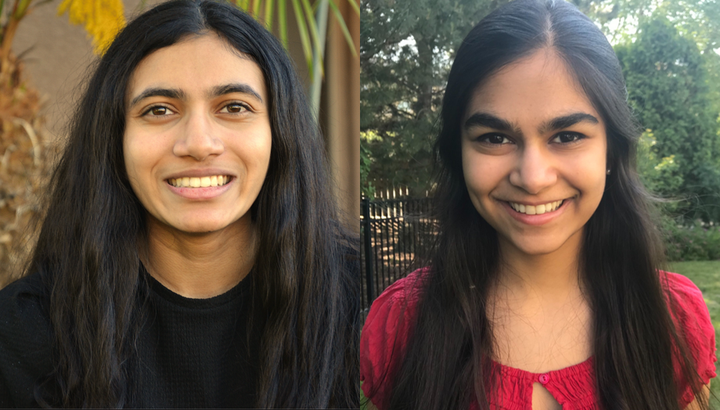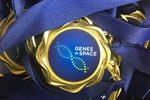GiS Spotlight: Honorable Mentions Riley Rane & Reva Agrawal
Genes in Space awards Honorable Mentions to ten outstanding proposals remarkable for their creativity and scientific rigor. Today, we're celebrating 2020 Honorable Mention recipients Riley Rane (16) from BASIS Scottsdale in Scottsdale, Arizona, and Reva Agrawal (16) from Glenbrook South High School in Glenview, Illinois. Here, Riley and Reva share how their long-distance collaboration fostered a standout proposal.

What was the focus of your experiment? Previous studies have shown that prolonged spaceflight weakens astronauts’ immune systems, making them susceptible to infections. We wanted to measure the gene expression of two cytotoxic enzymes responsible for the function of natural killer cells – granzyme and perforin – in microgravity in order to better understand why it’s harder to fight infections in space.
Why did you choose to participate in Genes in Space? We were both interested in genetic research, particularly changes in gene expression, and this contest provided a really unique application for this type of research – space! We hoped our experiment for the ISS could help further our understanding of how the distinctive conditions in space impact humans.
How did you choose your topic? Astronauts' natural killer cells are less effective in destroying infected cells in space, which makes them susceptible to infection. When researching this issue, we found that there was little understanding of how and why natural killer cells become less effective. We chose our topic in hopes that our experiment could help bring a safer stay in space one step closer.
What did you gain by participating in Genes in Space? We were amazed at how much research is already out there and how much we could learn about a topic of our interest in just a short amount of time. Genes in Space allowed us to go beyond the textbook experience and showed us the real-world impact that scientific research, even from high school students, can have!
Do you have any advice for future Genes in Space contestants? One of the first steps is to find a topic that really interests you. By focusing on a topic that fascinates you, your interest will shine through your proposal and will make the process more rewarding as you’ve spent time learning about something you enjoy. The most important thing, of course, is to have fun, don’t stress, and see where your research takes you!


